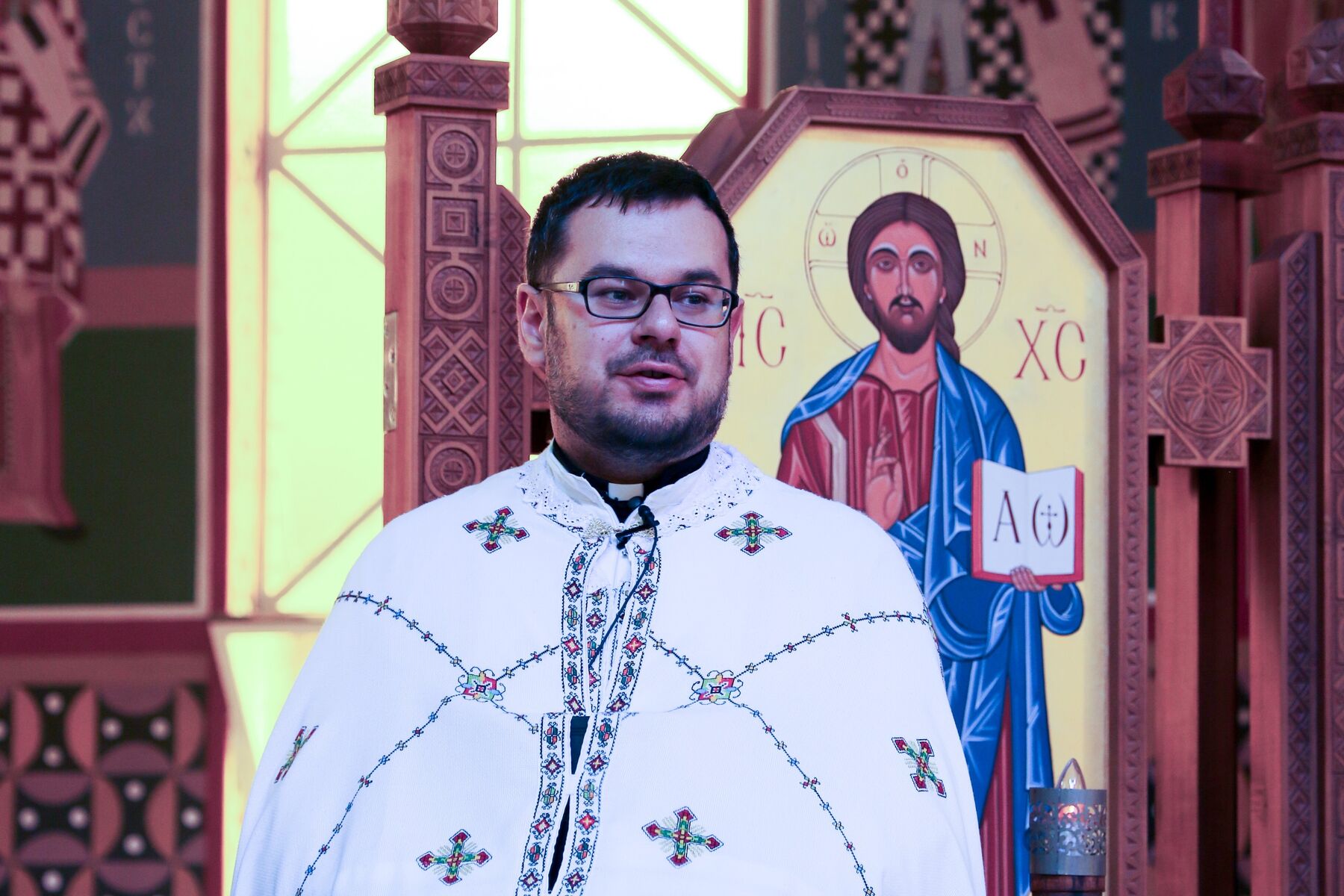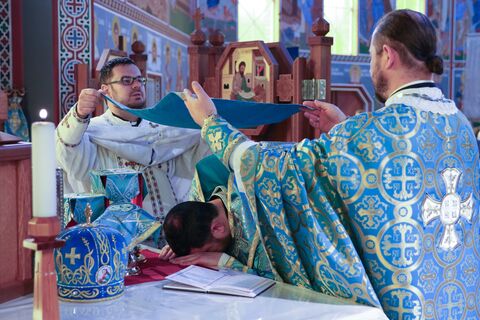Homily by Fr. Myroslav Vons on the Twentieth Sunday after Pentecost
October 25, 2025
When the Lord says, “Do not weep,” He is not denying her pain. He is giving her a reason to hope again — because God Himself is standing besides her. His very presence becomes her comfort and strength. Those words—”Do not weep”—are not cold or dismissive. They are like a gentle touch from God on a wounded human heart, a small ray of hope that keeps despair from taking over.

“When the Lord saw her, He had compassion on her and said to her, ‘Do not weep.’” (Luke 7:13)
Glory to Jesus Christ!
Dear brothers and sisters in Christ,
Every year we return to this Gospel story — and today, perhaps more than ever, its message touches our hearts. In a time filled with sorrow, pain, and loss, we hear again these simple but powerful words of the Lord.
Jesus is walking towards the city of Nain. A funeral procession comes towards Him — a mother is burying her only son. For this woman, life has lost all meaning. Her grief is beyond words. Jesus stops. He looks at the face of the weeping mother and says, “Do not weep.”
At first glance, it might sound as if Jesus is forbidding her tears, as if He’s saying, “Stop crying.” But that’s not what’s happening. His words are not a command — they are compassion spoken aloud. When the Lord says, “Do not weep,” He is not denying her pain. He is giving her a reason to hope again — because God Himself is standing besides her. His very presence becomes her comfort and strength. Those words—”Do not weep”—are not cold or dismissive. They are like a gentle touch from God on a wounded human heart, a small ray of hope that keeps despair from taking over.
And we hear the same words today: “Do not weep, for I am here with you.” I see your sorrow, your tears, your pain. I, the Lord your God, share in your grief. I will not leave you alone.”
Christ enters our brokenness, takes us by the hand, and walks through our suffering with us. We see something similar in another Gospel story — when Jesus goes to the house of Jairus, whose daughter had died. The people are weeping, but Jesus says, “Do not weep; she is not dead, but sleeping.”
And then, just as in Nain, He restores life. He touches what was lifeless — and life returns. Where death seemed final, hope rises again. Through this miracle, Jesus reveals a truth that never changes: God never distances Himself from human suffering. He is with us—always.
We, too, live in days of pain and grief. Mothers who have lost sons and daughters in war… families who receive news that shatters their hearts… fathers who bury children while the world grows dark before their eyes. Christ is not standing far from this pain. He sees every tear on the faces of Ukrainian mothers. He sees every destroyed home, every photo on a grave, every silenced child’s laughter. And He whispers softly: “I am here with you.” These words do not erase the pain. They do not make us forget. But they provide us strength. When our own hearts break, God becomes our heart. When our strength is gone, He becomes our strength. When we cannot go on, He carries us.
At the end of the story, those who witnessed the miracle exclaim, “A great prophet has arisen among us! God has visited His people.” (Luke 7:16). What does this mean for us today?
“God has visited His people” means He has entered our reality — our homes, our struggles, our sorrow. He does not stand outside watching; He steps inside our lives and becomes part of them. This is the Good News: God is with us — always. He is with our soldiers in the trenches, with the wounded in hospitals, with families mourning their loved ones, and with the Church that prays and carries hope in the midst of ruins. Even when everything seems lost or destroyed — He is still there. Even in our tears, God’s love is not silent. Today, the Lord once again invites each of us to trust Him — to let Him enter our pain and bring us hope.
Amen.


